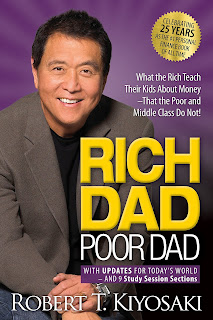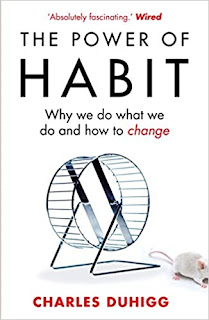Critical Analysis of "Rich Dad Poor Dad": A Balanced Perspective
Critical Analysis of "Rich Dad Poor Dad": A Balanced Perspective
Introduction
"Rich Dad Poor Dad" by Robert Kiyosaki has achieved remarkable popularity for its unconventional take on financial education. The book presents intriguing concepts and encourages readers to rethink their approach to money. However, a comprehensive analysis should consider both its positive aspects and potential shortcomings. In this in-depth evaluation, we'll explore the book's key insights, assess its impact, and provide guidance on how to approach its teachings critically.
 |
| Rich Dad Poor Dad: What the Rich Teach Their Kids About Money That the Poor and Middle Class Do Not! |
The Strengths of "Rich Dad Poor Dad"
Paradigm Shift in Mindset
One of the book's strengths lies in its emphasis on cultivating a wealthy mindset. By highlighting the importance of adopting a proactive attitude toward finances, Kiyosaki encourages readers to overcome self-limiting beliefs and take charge of their financial journey.
Asset-Oriented Philosophy
Kiyosaki's notion of differentiating between assets and liabilities is a notable strength. The book's emphasis on acquiring income-generating assets resonates with fundamental principles of wealth building. This concept prompts readers to prioritize investments that generate sustainable returns.
Inspirational Anecdotes
"Rich Dad Poor Dad" uses engaging anecdotes to inspire readers. The stories of individuals who have transformed their financial lives offer motivation for those seeking to break free from the constraints of conventional financial thinking.
Considerations and Potential Drawbacks
Oversimplification of Concepts
Critics argue that the book oversimplifies complex financial topics. While its core ideas hold value, they might not offer a comprehensive understanding of the nuances of personal finance. Concepts such as debt management, tax planning, and comprehensive retirement strategies are given limited attention.
Specific Investment Advice and Risks
The book's investment advice, such as real estate and entrepreneurship, may not be suitable for everyone. It's crucial to acknowledge that these ventures carry inherent risks that are not thoroughly addressed in the book. Readers should exercise caution and conduct thorough research before pursuing such paths.
Lack of Comprehensive Strategies
While "Rich Dad Poor Dad" introduces thought-provoking concepts, it doesn't provide detailed strategies for implementation. Advanced financial tactics, including investment diversification and estate planning, receive limited coverage.
Navigating "Rich Dad Poor Dad": A Balanced Approach
Extract Inspiration and Mindset Shift
Readers can derive value from the book's motivational content and mindset-shifting insights. The stories of individuals who have achieved financial success can serve as catalysts for personal transformation.
Supplement with Diverse Financial Resources
While "Rich Dad Poor Dad" provides a fresh perspective, it's prudent to complement its teachings with a range of financial resources. Exploring a variety of reputable financial experts' insights ensures a comprehensive understanding of personal finance.
Tailor Advice to Personal Context
Readers should consider their unique financial situations when contemplating the book's advice. Risk tolerance, financial goals, and individual circumstances play a crucial role in determining the suitability of actions such as real estate investment and entrepreneurship.
Approach with Critical Inquiry
When engaging with "Rich Dad Poor Dad," maintain a critical stance. Recognize its strengths while acknowledging its limitations. Always seek to broaden financial education through various reputable sources.
Conclusion
"Rich Dad Poor Dad" introduces a fresh perspective on financial education, urging readers to transform their money mindset and explore unconventional paths to wealth. While the book offers valuable insights, readers should critically assess its teachings, supplement them with comprehensive financial knowledge, and apply its advice judiciously based on individual circumstances.


Comments
Post a Comment